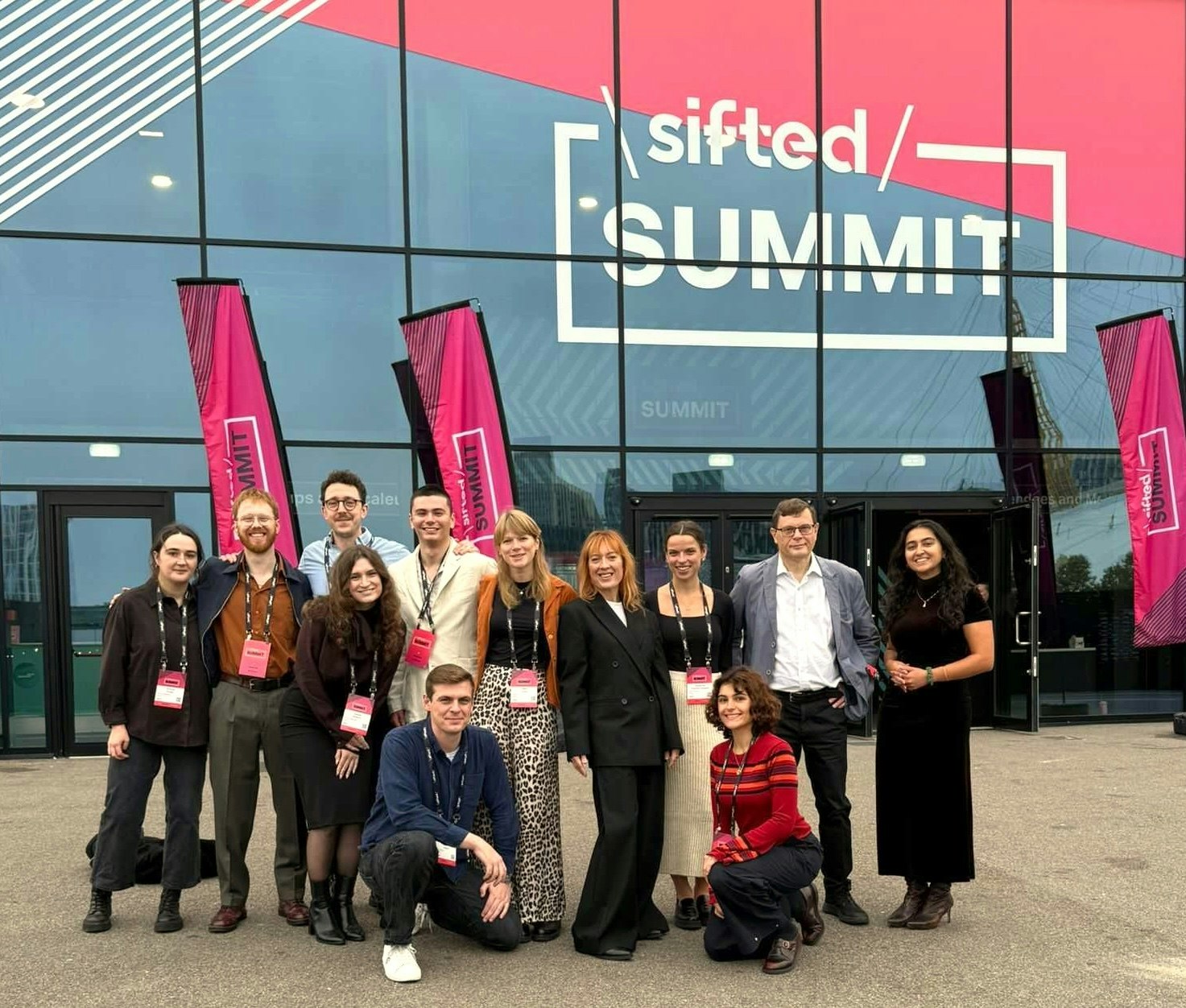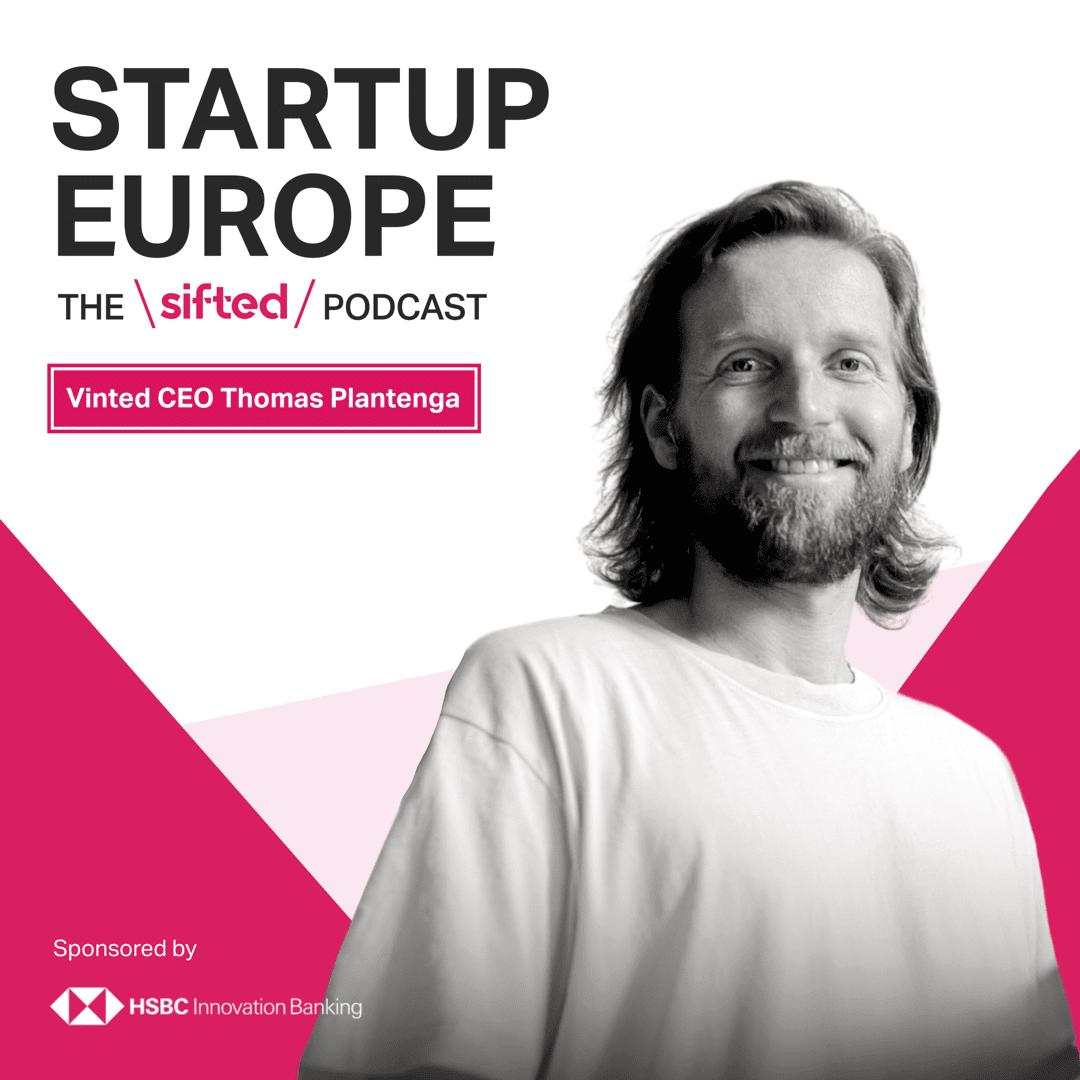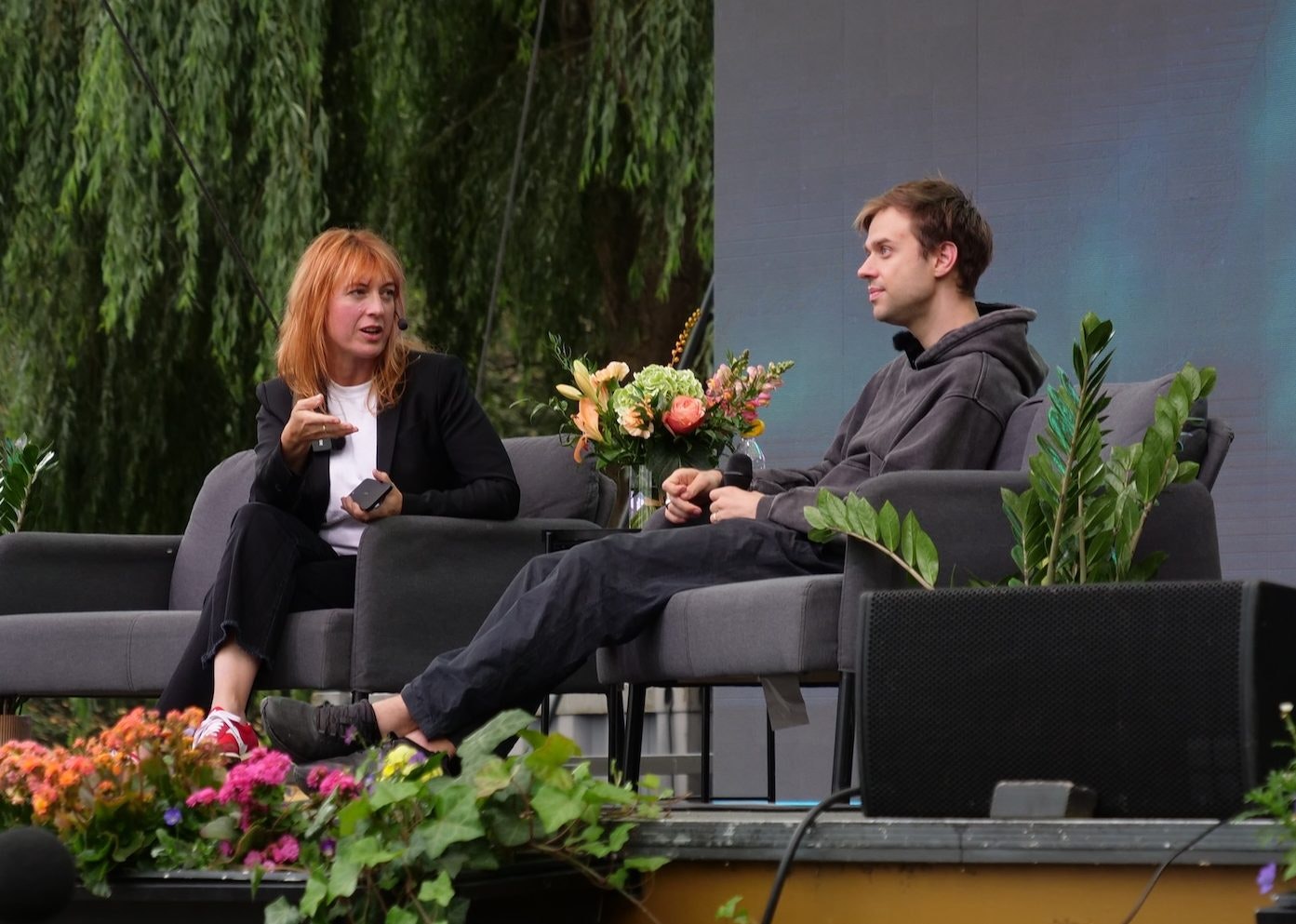Before founding Wikipedia Jimmy Wales had another encyclopaedic project called “Nupedia”. It failed miserably. Eight months after going online in March 2000, only two full-length entries had been published. The Nupedia experience is now a source of hope for Wales as he works to save his latest venture “WikiTribune”, a year-old website that is trying - but has so far not managed - to crowdsource the news.
“It was intimidating and complicated,” Wales told Sifted, thinking back to the Nupedia days. “I knew it wouldn’t work when I sat down to write something I knew about - Robert Merton had recently won the Nobel Prize in economics for his work in option-pricing theory, which was my academic and professional background. And I felt writers block.” A serial entrepreneur, Wales had no problem starting over. He simplified the contribution and review process and created Wikipedia, now the fifth most visited site on the internet after Google, YouTube, Facebook and Baidu.
He’s hoping the same thing will happen with WikiTribune - the media startup up he launched in April 2017, in the months after Donald Trump became US president, as an antidote to fake news and the loss of trust in the media. After hearing Trump’s advisor Kellyanne Conway talk about “alternative facts”, Wales thought he could apply some Wiki logic to media, bringing together professional and citizen journalists to write “stories as they happen, edit them live as they develop, and at all times backed by a community checking and rechecking all facts.”
Wales is not alone in wanting to involve the public in journalism - in the last year, people have been invited to contribute their thoughts, time and money to media initiatives like Tortoise, which hosts public events around the UK called “ThinkIns”, or The Correspondent - a reader-centric Dutch publication that has just launched an English version. Over 1 million members of the public pay an optional fee for the Guardian. WikiTribune wanted to take that a step further and invite the public to get into the copy.
Is radical crowdsourcing the way to “fix the news"? We don’t really know - this attempt to harness the crowd over the last year has fallen flat and in a blog post last month, Wales and his co-founder Orit Kopel announced a “new way” for the fledgling news organisation, which involved increasing community editing permissions on the site and sacking the 8 journalists who hadn’t already left.
We did a good impression of CNN on a budget
WikiTribune doesn’t want to share numbers but Wales says that the community is “small”; in June, the site was receiving around 20,000 visits per week and the WikiTribune Discord channel, a chat platform, currently has 357 members (including myself for the reporting of this piece). In its first year, the news site did publish a good deal more than Nupedia’s two articles - with analytical long reads and a number of exclusives. (“We did a good impression of CNN on a budget,” said a former WikiTribune employee.) But the community - Wiki’s USP - didn’t come and play. For the most part, citizen journalists assumed the role of typo-police and the articles that received most traffic were written by the professional staff.
---
Wearing Nike high tops in the private members' Conduit Club in Mayfair, Wales is quiet and unsmiling. On whether the last year has been fun or frustrating, he hesitates, laughs, leans back into his armchair, and says “fun”. He first places blame on the tech - “the Wordpress platform has been frustrating”. Community members couldn’t jump into the back end and edit copy directly because there would be no paper trail of edits, which could lead to chaos. This software fault and the editorial process itself, he said, led to the “journalists being above the community” and created a culture of “asking permission rather than just doing things.” (In the week after the changes, the operations manager said that there had been an increase in community contributed articles - they skewed American and tech.)
“I was hearing from community members, a nervousness and unwillingness to contribute because you had to go from scratch, write a full piece and submit it to someone who was going to tear it apart,” said Wales. “So what we needed to do from the beginning is say ‘let’s get started, we work together, we’re collaborating, let’s pull ideas together.’ Which is a completely different model, it’s the Wiki model.”
But former WikiTribune launch editor Peter Bale said that volunteer reporting is simply “a gigantic ask” because of the substantial amount of effort it takes to write an article. According to Bale, there were around six highly engaged community members who undertook fact checking, with a special interest in scrutinising Donald Trump’s statements. There was also a retired French diplomat, Jean-Jacques Subrenat, who contributed 17 articles on his areas of expertise.
---
After the “new way” blog post, Jimmy invited the community to chat with him about the changes on Discord. He was joined by 39 people - mostly hardcore fans (“For me it’s an honour to say hi and thank you for the knowledge base you created”) as well as a disappointed user (“I thought you were trying to solve a major problem with how news is sourced instead of avoiding it/doing essentially the same as what others do, but in a wiki kind of way.”) To the criticism, Wales replied: “I wish you’d yelled at me a year ago when we launched a very beautiful and non-participatory site :)”
The initial strategy set out by Bale, who resigned in April this year, was to populate the news site with quality content, which was supposed trigger community participation. This didn’t work as community members didn’t want to add to a finished piece of work and, according to Bale, community contributions tended to be news sources which created “a Wiki about the news, not news.”
Over the year they tried different types of stories: long form, news, interviews, fact checks. One WikiTribune journalist, who resigned some months before the announcement, said that the newsroom could have used more direction. “We’re doing the news, instead of an encyclopaedia. But how that was to be done wasn’t defined. Jimmy would come in every four months and have a meeting with broad concepts like ‘everyone is fundamentally good’ and ‘it’s like being in a jazz band where everyone is riffing’.” Wales said he purposefully took a hands off approach with the team. “I set very general parameters. One of the ideas for me is neutrality. But beyond that, I want people to experiment. I said just write what you’re passionate about.”
Wales is still riffing. “As we move forward, we’ll see the things the community is good at, or not so good at,” he said, adding that desk research, copyediting, and editorial judgement are strengths in the community; whereas interviews are less easy to crowdsource. He has ideas for community members to send journalists on assignments, to collaboratively write interview questions, or to create a ‘fact check encyclopaedia’ and subreddit style areas of interest for community members to add to. “What are the strengths of the community versus the strengths of that more traditional model,” he said, musing “you don’t see collaboratively written novels, but an area of fiction where we have seen community work is fan fiction.”
---
What Wales and Kopel didn’t mention when explaining the “major personnel changes” to the community, was that shedding their staff was primarily an economic decision. “It was basically because we absolutely need to conserve cash,” said Wales, who - so long as they don’t hire any more journalists - can currently sustain the business with his own money, supported by an undisclosed, probably small, number of monthly subscribers.
In 2017, Wales cobbled together support from here and there to get WikiTribune off the ground. They raised funds through a crowdfunding campaign and received two $50,000 grants from Craig Newmark and The News Integrity Initiative, as well as €385,000, “no strings attached”, from the Google Digital News Initiative. For their first year, they were housed in the Shard, London’s tallest skyscraper - courtesy of Khazanah, the Malaysian sovereign wealth fund, which has a tech incubator on the 22nd floor. Khazanah did not invest directly in WikiTribune, though they did pay Wales to give a talk at one of their events. That agreement has come to an end and so now, as their funding is running out, they also have to start paying rent in their new office space in Leicester Square.
Wales says that he has come close to raising more money but, despite the cash deficit, he wants to wait. “I need to crack the puzzle first,” he says, “it has to be sustainable, it has to survive, it has to grow.” Other than that, he is relying on subscriptions. (“No advertising and no paywall. A series of bad business decisions but that’s how I have built my career so far.”)
---
Can he crack the puzzle? In a Medium post, former employee Charles Turner constructively notes that the “fact check” articles on WikiTribune have received the most engagement, concluding that “collaborative journalism works when there’s a task at hand, not a narrative to follow.” Turner told Sifted that WikiTribune wasn’t a failure, just an attempt at solving a real problem: “The challenge isn’t that there isn’t quality journalism [out there]. It’s that journalists need to get people to be more engaged with it.”
Elsewhere, Wales has often attributed altruistic motivation to Wiki activity, describing Wikipedia editing as something worthwhile to do instead of playing Grand Theft Auto: “You feel, Wow! I made something productive and good and helped the world in some small way.”
But so far this altruism hasn’t produced results, leaving WikiTribune with little by way of engagement, or engaging content. Charlie Beckett, media professor at the London School of Economics, isn’t convinced it ever will. “You can get wonderful things from the public but none of this means they want to be journalists,” he said. “It’s good to access the knowledge, to tap into your audience. The Guardian does it, the FT does it at events and in the comments. The Correspondent journalists spend 60% of their time talking to the community, but it is still the journalists that put that together. That is different to “come create the journalism” - you can’t hand it over. Journalism is different to marshalling information - it’s creating stories.”
A study from December 2017 found that 77% of Wikipedia articles are written by 1% of editors.
That being said, few would have predicted Wikipedia. But even Wikipedia, a wonder of the internet, has hierarchies. A study from December 2017 found that 77% of Wikipedia articles are written by 1% of editors. The study author, Sorin Matei, told Motherboard: “The assumption is that it’s a creation of the crowd, but this couldn’t be further from the truth… Leaders matter tremendously. They invested so much of their time and seeded the collaboration process.”
Wales says Wikipedia is open in that it is clear that “anyone can join and become active” but there is a structure and a hierarchy, and he wants the same for WikiTribune - just without journalists at the top. “People think of 10 million people adding one sentence each but that isn’t the way it works - it is a small group of people who make all the difference,” says Wales. “So you need to have that healthy community from the beginning. That’s what we’re doing at WikiTribune is gathering people.”
One year on, Wales has toned down his pitch for WikiTribune - which he previously said was going to “fix the news”. “I don’t think we’ve got the solution to everything, I don’t think there is one solution,” he said. “Whatever flaws Wikipedia has, people think it’s honest because it is a group of people trying to get it right. I think journalists are a group of people trying hard to get it right. But there is a lack of trust because of a lack of transparency.”
The WikiTribune webpage is still there. It now looks like the draft tab in your content management system. In the last 24 hours, WikiTribuners have published articles including a history of kangaroo meat (4 contributors, 9 edits), a short summary of the escalation between Russia and Ukraine on the Kerch Strait (4 contributors, 9 edits), and a fact check on a Chinese research group that “arguably has produced HIV-resistant babies” (1 contributor, 2 edits but no conclusion).
It might become something, it just might not be news.



